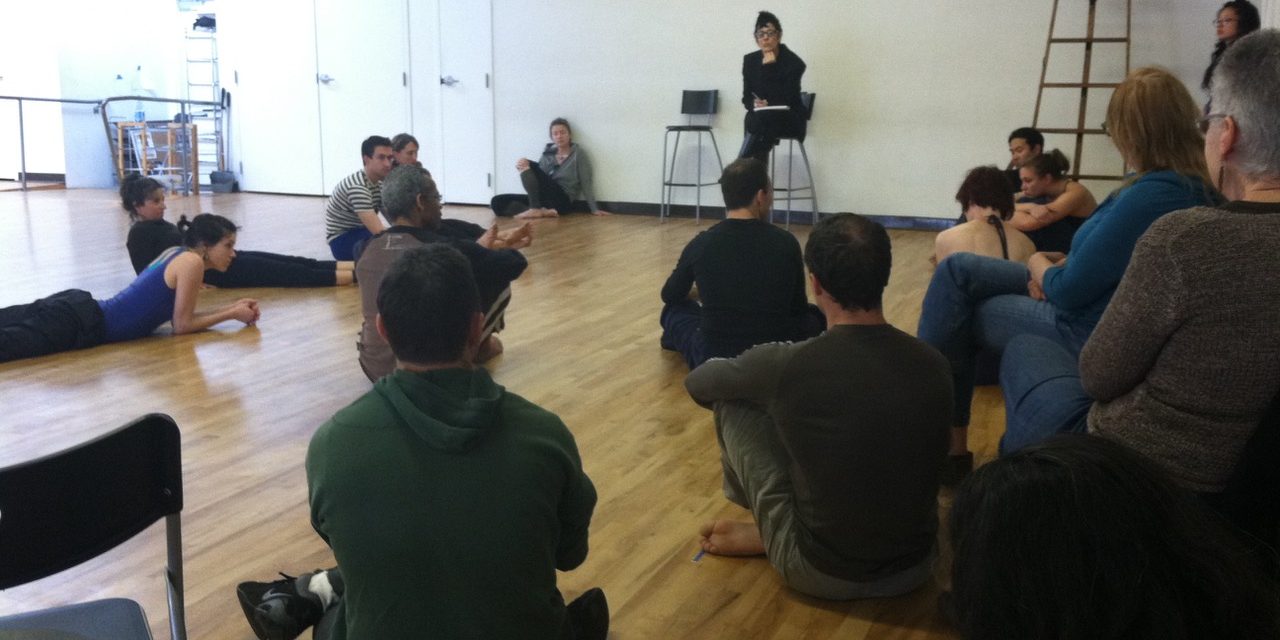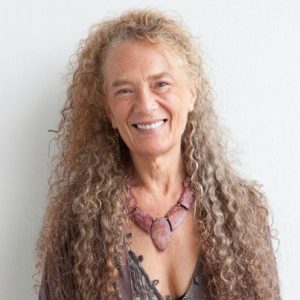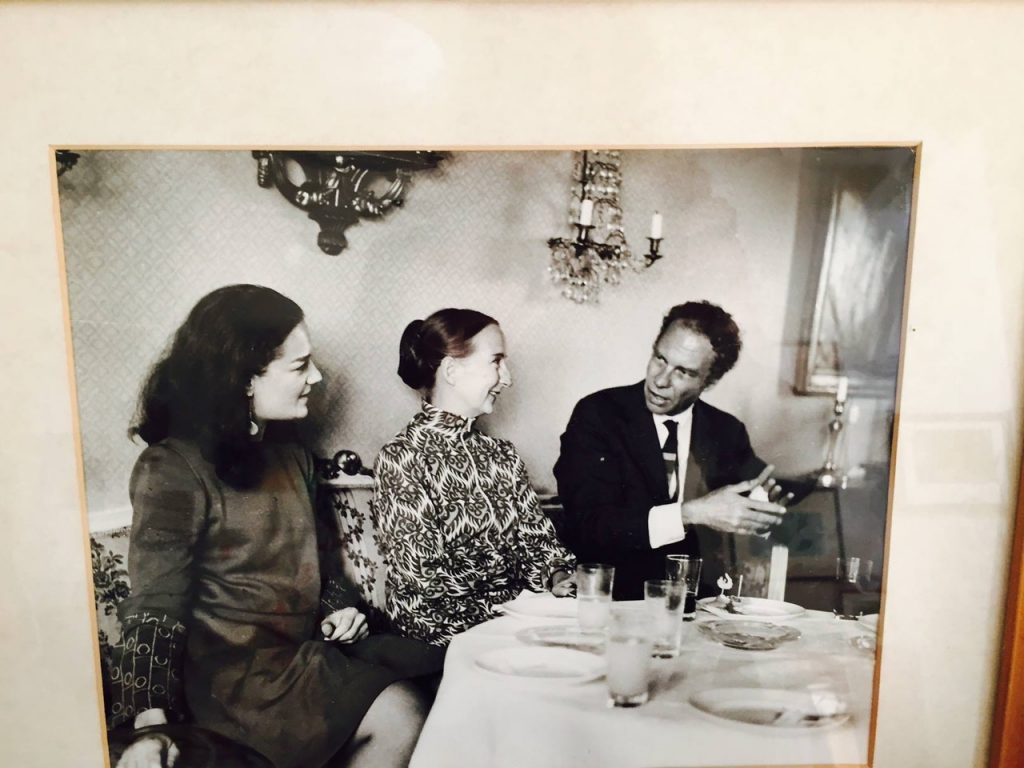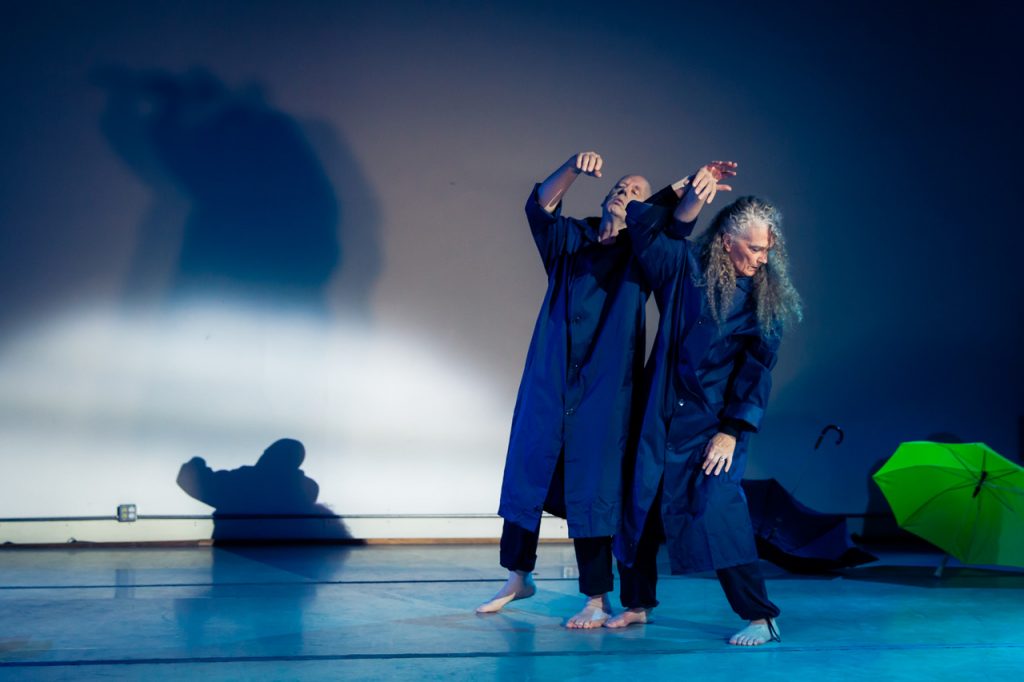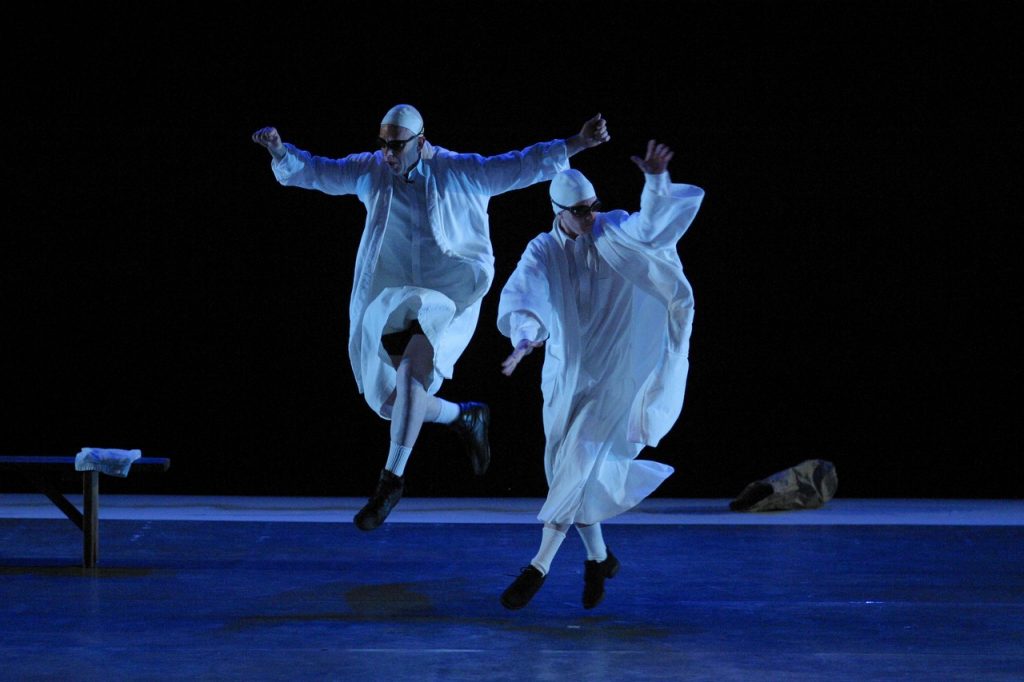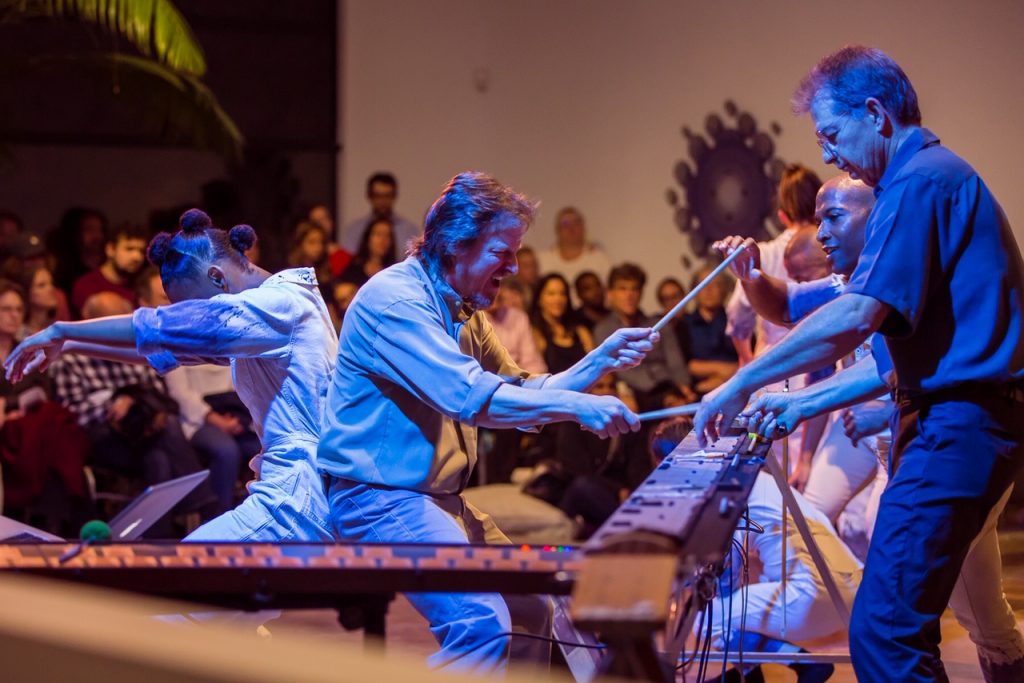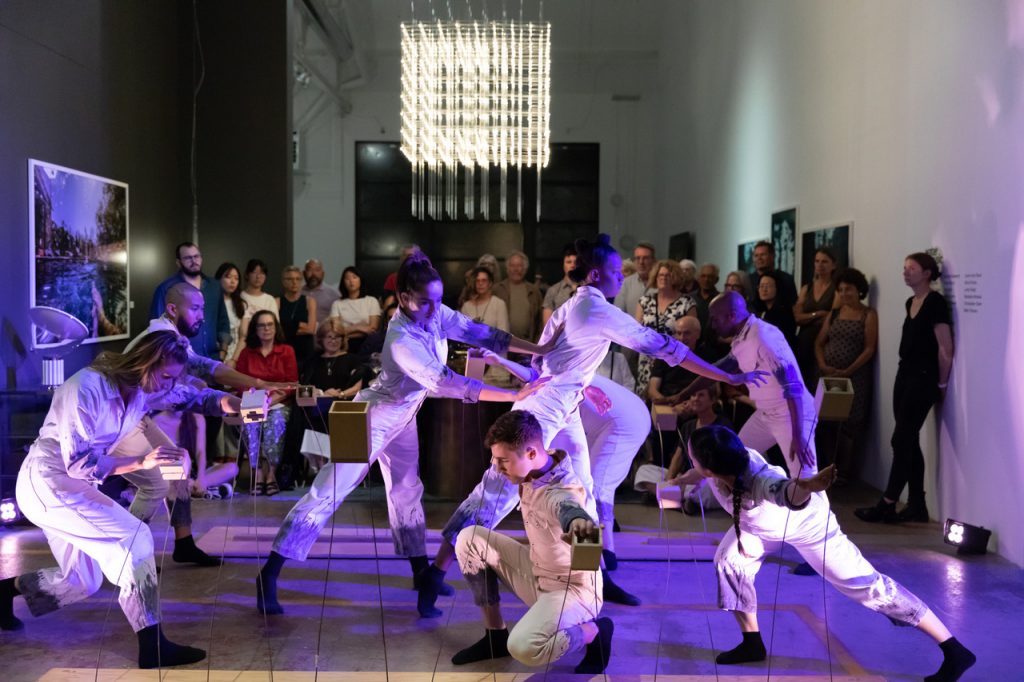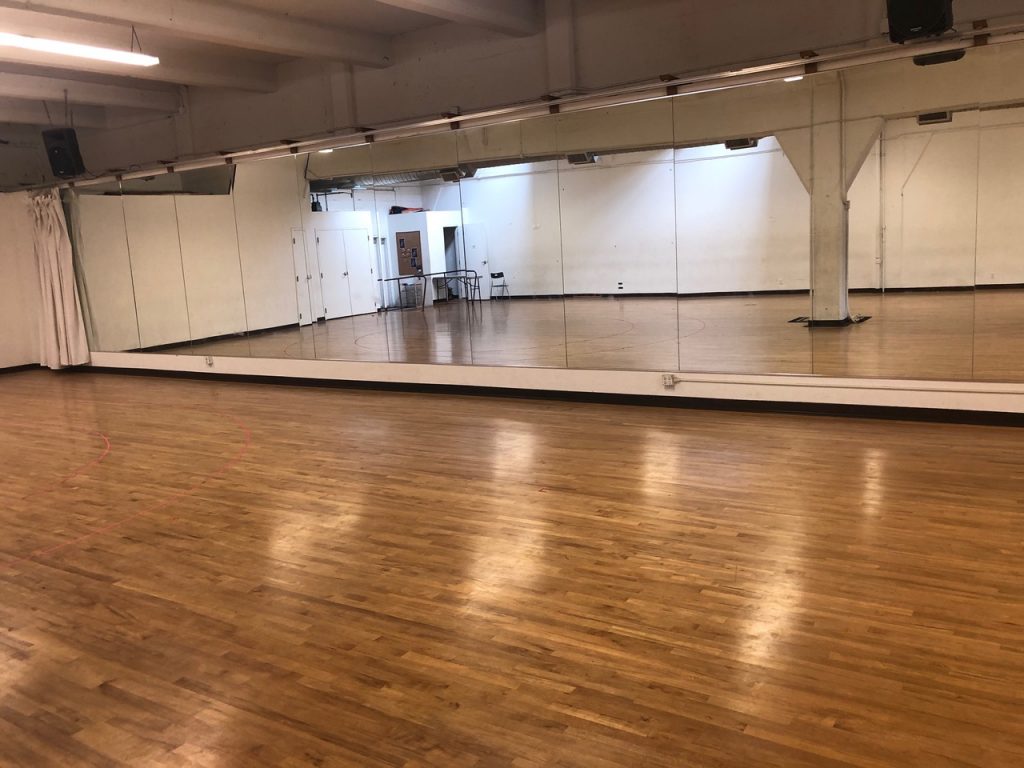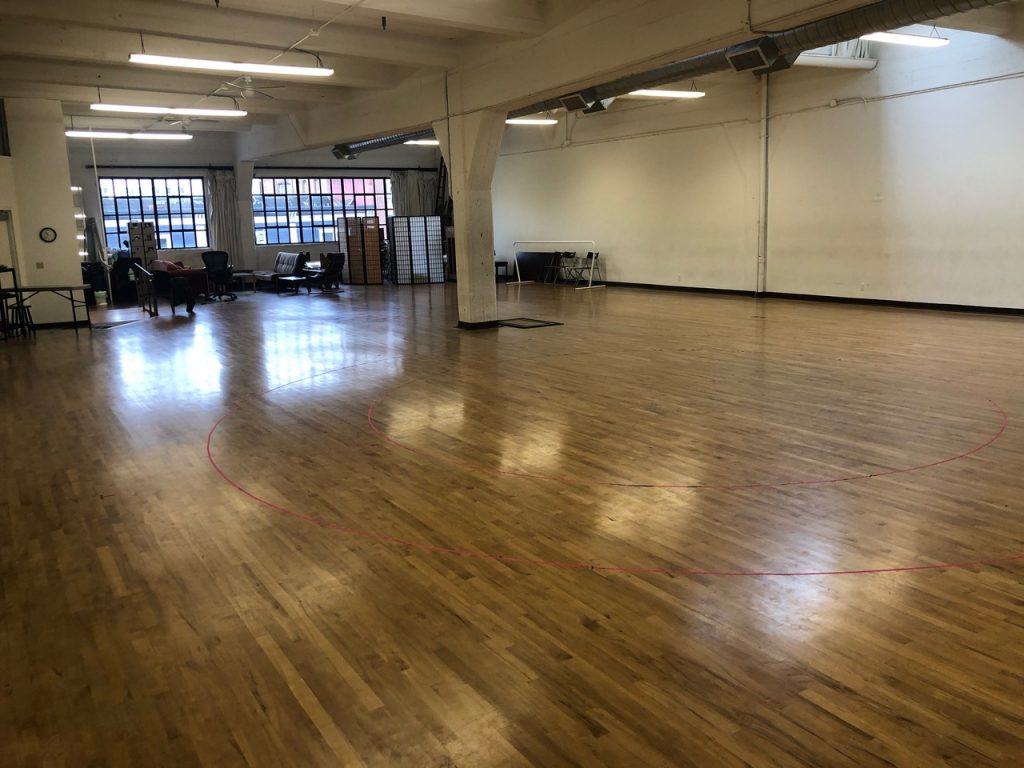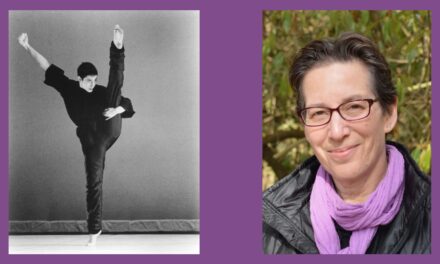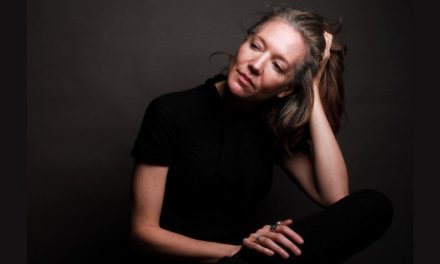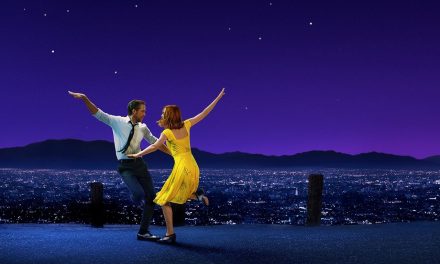Margaret Jenkins is the founder of the San Francisco based Margaret Jenkins Dance Company (MJDC), a beautiful performer, innovative choreographer, marvelous teacher, and mentor to many artists. She moved to New York City in the 1960s to study at The Juilliard School, and continued her education at the University of California, Los Angeles (UCLA). Jenkins returned to New York where she performed with the companies of Jack Moore, Viola Farber, Judy Dunn, James Cunningham, Gus Solomons, Jr. and in Twyla Tharp’s original company with Sara Rudner.
It was at the Merce Cunningham Studio on Third Avenue that I first met Jenkins. We became friends when I sublet an apartment from Sara Rudner in New York’s “Little Italy” and our kitchen windows faced each other. It was in those apartments that we shared many a conversation over Italian coffee. In addition to being on the faculty of the Merce Cunningham School, Jenkins restaged works by Merce Cunningham in Europe and the United States for approximately 12 years. Indeed, in 1967 when for the first time ever Cunningham set a work of his on another company, it was Jenkins that he hired to re-stage the work for the Cullberg Ballet in Stockholm, Sweden. The dance was titled Summerspace which premiered on August 17, 1958 at the American Dance Festival at Connecticut College, New London, CT. The original Cast included Carolyn Brown, Remy Charlip, Merce Cunningham, Viola Farber, Cynthia Stone, and Marilyn Wood. The costumes and set were designed by Robert Rauschenberg and the music was by Morton Feldman.
After I ended my tenure with the Cunningham Company, Margy, as many of her friends call her, and I became founding members of the Viola Farber Dance Company. That was 1970. I was sad when she decided to move back to her hometown of San Francisco with her husband but it was a wonderful move for them and it did not take long before Jenkins was a major figure and driving force behind the San Francisco dance community. No one in New York was surprised.
MJDC was formed in 1973 and Jenkins opened the Bryant Street Studio, one of the West Coast’s first studio-performing spaces that was also a school for the training of professional modern dancers. The space soon became the center for local and touring companies to teach master classes and to perform their work. Merce Cunningham and Viola Farber were frequent guests as well as numerous other inspiring dance artists who found a safe venue to experiment and push the boundaries of their choreography.
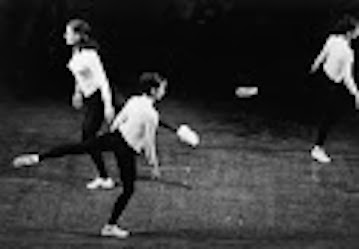
Margaret Jenkins, Twyla Tharp, Sara Rudner in “ReMoves” choreography by Twyla Tharp 1966 – Photo courtesy of MJDC
In 1980 the company moved to the 15th Street studio in San Francisco’s Mission District and then from 1983 to 1995, MJDC shared a beautiful studio/performance space with ODC/San Francisco known as the New Performance Gallery. I had the honor of teaching there and in 1989 dance artist Douglas Nielsen and I presented a co-produced concert titled 50/50.
After her partnership with ODC/San Francisco changed, MJDC spent four years renovating a large gym on the UC San Francisco campus converting it into a venue for performances and rehearsals. Finally, in 2004, the Margret Jenkins Dance Lab became the company’s permanent home.
Since forming MJDC, Jenkins has created over 80 works for the company as well as for companies in the U.S., Asia, and Europe. She has created works on numerous college and university dance departments and received commissions from numerous and noted presenters that include Clarice Smith Center for the Performing Arts at the University of Maryland, Yerba Buena Center for the Arts (YBCA), The Dance Center of Columbia College in Chicago, National Dance Project (NDP), Krannert Center for the Performing Arts, Arizona State University, and Ginko, a modern dance company in Tokyo, Japan. In 2008, Jenkins was one of two women to have the distinct honor to create a new work for the 75th anniversary of the San Francisco Ballet.
Jenkins has received numerous awards, among them: a Guggenheim Fellowship, an Irvine Fellowship in Dance, the San Francisco Arts Commission Award of Honor, three Isadora Duncan Awards (Izzies), including a Sustained Achievement Award in 2015 and the Bernard Osher Cultural Award for her outstanding contributions to the arts community in San Francisco and the Bay Area. On April 24, 2003 Jenkins received a Governor’s Commendation from Governor Gray Davis and the Mayor of San Francisco, Willie Brown, declared it the “Margaret Jenkins Day”.
Jenkins is the founder of CHIME (Choreographers in Mentorship Exchange) and Encounters Over 60, two community-based dance projects. CHIME was developed by Margaret Jenkins in 2004 as a professional mentorship program for choreographers and movement-based artists. She understood that communication between established dancemakers and those of different generations is essential to the health of the field of dance by “creating an arena for the rigorous, critical analysis of choreography, stimulating the artistic growth and confidence of emerging choreographers” and more. Over the years CHIME has provided significant, direct support to over 150 established and emerging choreographers. That support consisted of mentoring, free rehearsal space, workshops facilitated by guest artists, and public showings of their work. Encounters Over 60 is a program designed to help increase the visibility and support of elder dance artists with two week-long residencies at the Margaret Jenkins Dance Lab.
With all the wonderful history between Jenkins and me, and knowing the enormous impact that she and her company has had on the art communities in San Francisco, Israel, China, India and beyond, I was extremely saddened when I opened an email from MJDC and read that after 15 years of innovative and creative activity the Margaret Jenkins Dance Lab was another in a growing list of dance establishments to fall victim to the pandemic closures.
“Our summer, like for many, has been a mix of saying goodbye to old structures and opening ourselves up to new ways of moving forward with resilience, hope and tenacity…awaiting embrace.
“The Margaret Jenkins Dance Lab was a place to gather, to generate, to share one’s discoveries, innovations, and investigations. It was a place for transmission of ideas across race and age and a diversity of styles in our mentorship program CHIME (Choreographers in Mentorship Exchange) and most recently Encounters Over 60. The Dance Lab was a hub of activity that greeted everyone equally and we looked forward to it flourishing.
“As the pandemic took hold across the world, important measures like social distancing and the sustained shelter-in-place came into effect, imploring us to close our doors to the community. Our board and staff explored every option, but in this environment there was no way to sustain our community space. With the understanding of our funders and our community, and after 15 years of movement and light held within the walls and floor, we said goodbye to the Margaret Jenkins Dance Lab.” MJDC press release 9/25/20.
The company is fortunate that due to the support of the Hellman Foundation and the Fleishhack Foundations, its community programs for 2021 are currently in development. This gives MJDC the much needed encouragement to find ways to continue its CHIME and Encounters Over 60 programs. Also, while in the midst of saying farewell to the Dance Lab, MJDC and 10 other dance artists were awarded a Hewlett 50 Arts Commission. It is one of the largest commissioning efforts in the country. It was awarded to MJDC for the company’s new work Global Moves, a collaboration with artists from China, India and Israel. These are three countries that Jenkins has made works for since 2006.
In Global Moves, dancers from three companies work together for the first time in collaboration with the MJDC and longtime collaborators Paul Dresher, Alexander V. Nichols, Michael Palmer, Rinde Eckert and Mary Domenico “to make a work that addresses, in part, xenophobia and nationalism, but also the social and health pandemics – the sense of isolation, frustration and fury we are all feeling during this time”. Global Moves is scheduled to premiere in the fall of 2021.
The Margaret Jenkins Dance Lab is but one of many studios that have had to close its doors during the COVID pandemic and we will not know for a few years what the total impact will be on the national and global dance community.
The pandemic continues, as do we. Recently, Ms. Jenkins was asked during an interview with writer Lou Fancher of San Francisco Classical Voice, “What gives you hope for the arts community and yourself after multiple blows?”
Her response was like the Margy I have known for over forty years, “The resilience and determination of artists who believe art is a form of resistance, the young people in their 20s, 30s, and 40s is extraordinary and constantly fuels my ability to get up and keep going. Those generations fuel people in their 50s, 60s, and 70s, and we support one another in a way that is rather poignant and breathtaking at times. We are incredibly privileged being in this world of newly realized/extraordinary activism.”
To visit the Margaret Jenkins Dance Company website, click HERE.
Written by Jeff Slayton for LA Dance Chronicle.
Featured image: Elizabeth Streb seated in chair center – Margaret Jenkins Dance Lab – Photo courtesy of MJDC

